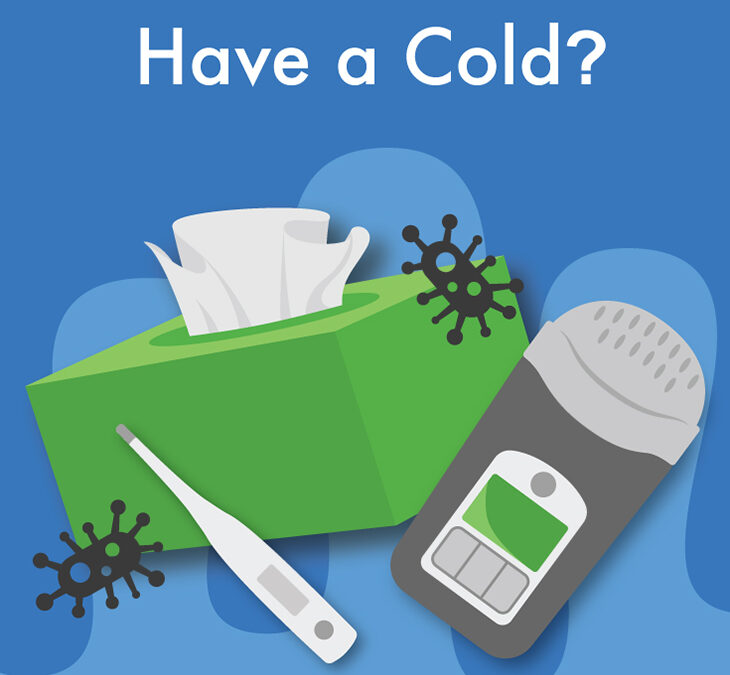It is critical to warn our patients of the impact of the flu on dental health throughout this season. Knowing what you can do to keep your teeth healthy while fighting this illness. as well as how oral hygiene might aid or impede your recovery, is powerful.
Flu and your Oral Health?
Influenza, sometimes known as the flu, is a contagious respiratory virus. Millions of people contract it each year. And those with weakened or immature immune systems are at risk of death. A sore throat, cough, nasal congestion, muscle pains. exhaustion, vomiting, and, in certain cases, diarrhea and fever are all symptoms.
A case of influenza can be eliminated from the body in as little as two days if the immune system is healthy. but the virus can stay in the body for up to two weeks if the immune system is weak. The flu virus is deadly since its consequences can be fatal. Pneumonia, inflammation of the brain, heart, and muscle tissues, organ shutdown. Then even sepsis is all serious and catastrophic complications of the flu. The flu has a link to many reported incidents of mortality and pain. Yet many individuals are unaware of the link between the virus and the mouth. However, this disease is doing havoc on the oral cavity the entire time it is attacking the body.
Effects of flu on your mouth.
To begin with, Flu can be infecting respiratory droplets. This is a medical term for saliva and mucus that originates in the nasal passages. When it comes to the spread of the flu virus, the mouth is patient zero. Brushing will not cure the flu. it is crucial to be aware that contact with your lips may spread the sickness or serve as a source of contamination. The direct cause of influenza spread includes sharing beverages, sneezing without covering the mouth. There are things you can do to avoid catching and spreading this sickness. Because influenza attacks all your body’s systems. it can have a big impact on your oral health.
Healthy teeth and gums are well known for preventing gum disease. But proper oral hygiene can also help avoid other forms of systemic disorders. Chronic gum inflammation (periodontitis) allows bacteria to enter the bloodstream through the mouth. The Yale University School of Medicine recently published a study. It found a link between oral hygiene and bacterial pneumonia. Pneumonia is a lung infection that comes after a cold or flu. It has weakened an individual’s immune system. Poor dental hygiene was discovered to be a common contributing risk factor for pneumonia, according to the study. According to a Yale study, persons with severe gum disease have a twofold increased risk of infection1…
Tips to help prevent Cold and flu on your mouth
Toothbrushes can house bacteria that are dangerous to your health. “Even after being rinsed clean, toothbrushes can remain contaminated with potentially dangerous organisms. This is according to the Centres for Disease Control (CDC). As a result, the American Dental Association recommends replacing them every 3-4 months at the very least2. To avoid reinfection, it is recommended that a toothbrush used during an illness be thrown. Even though bacterial diseases like strep throat are more likely to resurface in this way. a flu strain can resurface in people with compromised immune systems3. Here are some infection-fighting toothbrush recommendations to help you avoid catching a cold or the flu this winter:
• After brushing, thoroughly rinse the toothbrush and set it upright to air dry.
• Avoid bacteria entering your mouth by washing your hands before and after brushing or flossing.
• Never share a toothbrush with another person.
• Keep all toothbrushes in the house separated from one another to avoid cross-contamination and bacterial spread.
• Once a week, sterilize your toothbrush by placing it in a microwave-safe container with a few inches of water and heating it for 2-3 minutes.
, maintaining good oral and dental hygiene can improve your overall health. Brush your teeth for two minutes at least twice a day if you have a cold or the flu. This helps to keep germs in your mouth under control and can help to relieve some of the symptoms of congestion, such as foul breath and dry mouth.
Gargle with warm salt water or an antibacterial mouthwash a couple of times a day as well. This technique may also help to reduce bacteria in your mouth and throat, as well as lessen inflammation and pain.
Throughout the day, make sure to drink lots of water. It hydrates your body while also keeping your mouth moist. Dehydration can be exacerbated by a fever, which can lead to weariness and bodily aches.
You could also use sugar-free drugs or clean your teeth after taking them if possible. To make cough syrups other drinking cold and flu treatments more pleasant, they are often loaded with sugar. But how many times have you taken a cough medicine before going to bed or napping? It’s a recipe for dental decay to go to bed with sweets on your teeth.

